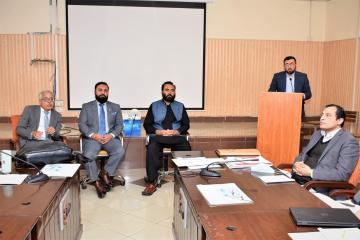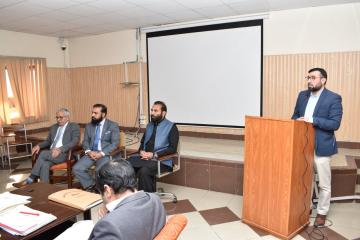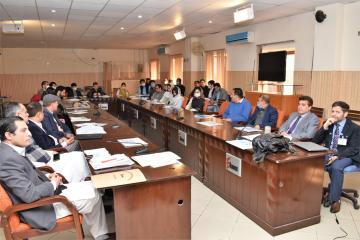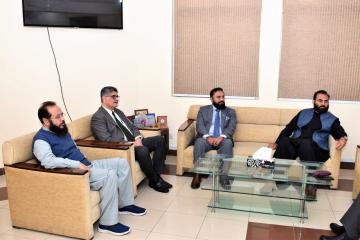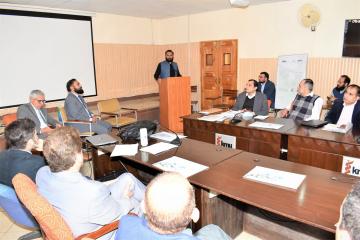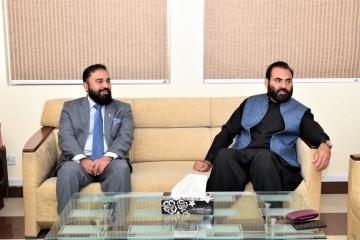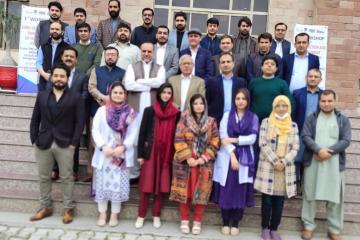Three days workshop on early detection and management of young onset psychosis
A three days workshop on early detection and management of young onset psychosis was held at Khyber Medical University (KMU), Peshawar. Psychiatrists, psychologists and notable international and national faculty participated in the workshop. The workshop was formally inaugurated by Secretary Health Govt of Khyber Pakhtunkhwa Mr. Tahir Orakzai and vice chancellor KMU Prof. Dr. Zia ul Haq.
Prof. Dr. Saeed Farooq University of Keele UK, Prof. Dr. Imran Chaudhry Ziauddin Hospital Karachi, Dr Muhammad Gul, MPF NHS Trust, UK, Dr Tayyeba Kiran & Ameer Khoso, Pakistan Institute of Living & Learning, Prof. Dr. Sheharyar Jovendah Lahore, Dr. Malik Wajid Rawalpindi, Dr. Imran Khan Consultant Psychiatrist KTH, Prof Wajid Ali HMC, Prof. Dr. Irfan Peshawar Medical College, Dr. Mukhtar ul Haq LRH, Dr Jalil Khan,KMU and other faculty members and senior psychiatrists from across the province attended the workshop.
Mr. Tahir Orakzai addressing the workshop said that mental health issues are increasing day by day which is a big challenge for all of us. He said that the research on mental health in KMU was a timely step in the right direction which would help the government to tackle this problem on a solid basis. Prof. Dr. Zia-ul-Haq said that KMU is taking steps under a comprehensive approach to knowledge and research to address health issues, a clear example of which is the KMU’s role in diagnosing and preventing infectious diseases such as corona and dengue. He hoped that the research study being conducted on mental health by KMU would yield encouraging results.
This workshop is part of THE HOPE program of research which KMU is running in collaboration with University of Keele UK, University of Kent and funded by Medical Research council UK. The study will be carried out in the provincial capital Peshawar.
It is worth mentioning that traditional healers working with primary care and mental health professionals for early intervention in psychosis (THE HOPE) is an innovative approach. It will involve traditional and spiritual healers (TSH) working collaboratively with primary care practitioners (PCPs) through task shifting for early detection, referral and treatment of first episode of psychosis.
While talking to the workshop the mental health experts expressed that THE HOPE program aim to develop a culturally appropriate and context-bespoke intervention for early identification, referral and management of First Episode Psychosis (FEP) in the adolescent population in Peshawar and evaluate its feasibility for implementation. THE HOPE will help to prevent long-term consequences of untreated psychosis, which on average remains undiagnosed and untreated for over two years in low-and middle-income countries in young persons.
They said that the prevalence of psychosis increases rapidly from age 14 onwards with a peak incidence in the late teens and early 20s. A meta-analysis based on community samples (n=29517) found that about 10% of children and adolescents reported significant psychotic experiences. First Episode Psychosis can disrupt education, reduce long-term employment, cause huge economic burden and is associated with significantly higher mortality compared to the general population.

